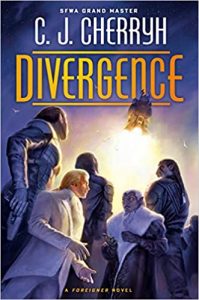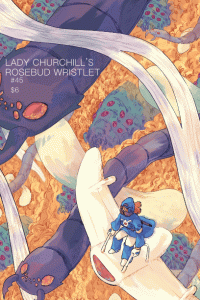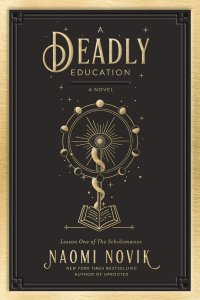Russell Letson Reviews Divergence by C.J. Cherryh
 Divergence, C.J. Cherryh (DAW 978-0-756-41430-6, $26.00, 339pp, hc) September 2020. Cover by Todd Lockwood.
Divergence, C.J. Cherryh (DAW 978-0-756-41430-6, $26.00, 339pp, hc) September 2020. Cover by Todd Lockwood.
C.J. Cherryh’s Divergence is not a minor book, but after 20 previous entries in this long-running series, your faithful reviewer is reduced to recommending the entire Foreigner sequence yet again and assuring those already familiar with its pleasures that even after so many books, Cherryh’s hand has not lost its cunning and that there are still nooks and crannies and angles of view to explore in this close-textured world of human and non-human emotions, politics, and blind spots.
But just to mark where we are on this long road: Divergence is a direct (as in, opening on the next day) sequel to Resurgence, in which human translator-diplomat Bren Cameron has been directed to aid in complicated economic-political negotiations among various blocs of the atevi, on whose world a population of lost-and-marooned humans have been both guests and combatants and are now allies (or, to use a more atevi-apt term, associates) in a long-running cultural-technological transformation of the deeply traditional and trickily non-human host civilization. Cameron’s task is more than diplomatic: his instruction from the governing atevi aiji (lord) Tabini is to “keep her safe” – meaning his grandmother, the anything-but-retired dowager-aiji Ilisidi, who has instigated negotiations as part of a project of her own.
Once again the narrative shifts between Cameron and Tabini’s young son and heir apparent, Cajeiri, both of whom find themselves in new, expanded roles. Bren is trying to keep up with the force-of-nature (and of atevi politics) dowager – to keep one eye on her complicated plans and another on possible threats to her safety. Meanwhile, Ilisidi is intent on reshaping a swath of relationships outside the western alliance that has long dominated most of the continent, partly through its connection with the technologically advanced human settlement. But the dowager has her own uses for the human diplomat-troubleshooter-negotiator, and juggling these duties means Cameron is operating at the thin edge of his considerable abilities.
Cajeiri, in the meantime, is growing up, taking his responsibilities as a future leader quite seriously, and being treated by both of his parents (who have not always been on comfortable terms with each other politically) as a young lord-in-training. This leads to revelations about their personal histories and how those intersected with the political machinations that surrounded them, and it also gives us a glimpse of the emotional (or even romantic) lives of these deceptively human-seeming beings.
In fact, familial and general atevi modes of attachment are all over this book – the anxiety of an atevi lord and his wife over their daughter; the scandalous (we might say evil) kidnapping and extortion employed by the unscrupulous forces to break man’chi (atevi loyalty or associative attachment); the anomalous and dangerous condition of a young clan leader, candidate for a lordship, set loose in the world without close family (all murdered) or upward man’chi, an unfree free agent – and with a possible inappropriate soft spot for a young woman in peril. The larger new-and-interesting features of this and the preceding volume are also rooted in purely atevi matters, and they deliver details about this world’s political, geopolitical, and economic history – how the larger (and previously only alluded-to) divides in cultural and economic environments developed, reaching back into what we would call atevi ancient history: how geography and climate and natural disaster shaped their world and their civilization.
Ilisidi’s choice of venue for the meeting is Hasjuran, an isolated provincial lordship out in the wild territories that have never accepted the hegemony of the western association that governs much of the rest of the continent. The wintry town, perched at the top of a mountainous railroad route, is a survivor of the atevi world from before the arrival of humans – low-tech, conservative, highly sensitive to both threats and alliances from powerful neighboring clans and territories. Later the action shifts to a lowland province that has suffered in the economic and political stranglehold of a tyrannical neighboring lord, who is in turn backed by remnants of the rogue and sociopathic (by atevi standards) underground Shadow Guild, which fomented a coup and lost a civil war a few years earlier.
These are parts of the atevi world, cultural and geographical, that even Cameron has never seen. Much of the story consists of conversations, negotiations, and revelations, with a large dose of puzzling over mysterious events and possible covert connections or possible betrayals. The focus shifts from negotiation to intrigue when the action moves to the lowland city, where hidden connections and agendas lead to the springing of traps and the clarification of loyalties and ambitions – the confirmation of man’chi and character.
For years I have been writing that I would be happy to see this series continue beyond the confines of the trilogy or trilogy-of-trilogies, to not head for some Final Resolution, and I have gotten my wish. As a result, some of its pleasures do indeed depend on familiarity with long-running story lines and motifs, on the gradual evolution or revelation of character (though it should be possible to enter the series via this volume and its immediate predecessor, Resurgence). Nevertheless, it still continues to deliver new variations on those pleasures, to behave as though they were generated by a real world rather than one created by the imagination – but then, the world around us is a creation of imagination, too.
Russell Letson, Contributing Editor, is a not-quite-retired freelance writer living in St. Cloud, Minnesota. He has been loitering around the SF world since childhood and been writing about it since his long-ago grad school days. In between, he published a good bit of business-technology and music journalism. He is still working on a book about Hawaiian slack key guitar.
This review and more like it in the August 2020 issue of Locus.
©Locus Magazine. Copyrighted material may not be republished without permission of LSFF.
 While you are here, please take a moment to support Locus with a one-time or recurring donation. We rely on reader donations to keep the magazine and site going, and would like to keep the site paywall free, but WE NEED YOUR FINANCIAL SUPPORT to continue quality coverage of the science fiction and fantasy field.
While you are here, please take a moment to support Locus with a one-time or recurring donation. We rely on reader donations to keep the magazine and site going, and would like to keep the site paywall free, but WE NEED YOUR FINANCIAL SUPPORT to continue quality coverage of the science fiction and fantasy field.








Your faithful reviewer begs to explain this review’s odd-sounding lede, which is an editorial artifact. The original opening sentence begins, “This Take on C. J. Cherryh’s Divergence is Short not because it is a minor book, but because. . . .”
Mr. Letson writes: “though it should be possible to enter the series via this volume and its immediate predecessor, Resurgence).”
I beg to differ. I don’t believe a strictly narrative beginning of a great deal of internal cogitation will grab readers. Unfortunately, the granular “discussion” of atevi mindsets, “manchi” and other issues, will leave a first-time reader of Resurgence or Divergence confused and unwilling to continue past the first pages.
Readers have a much better chance of enjoying the last two books if they start at the beginning, or – as suggested by the reviewer – at Convergence. And the immersion into the Foreigner world is much more satisfying when a reader understands (or perhaps I should say “grasps”) the culture of the atevi – and the humans – which to me is the underpinning of the series.
I have been a fan of Ms. Cherryh’s since Gate of Ivrel and Brotherhood of Earth. I fell hard for her Chanur series and found in her such a deft hand in creating “aliens” who are far more real and intriguing than mere humans, a talent she has brought to fruition in the Foreigner books. For me, the scary part is that I am a year older than she, and in this current year of horrors I have rejoiced in my shelves of books to read and reread, and was so happy to have Divergence appear! However, there’s only one new book a year! What if she becomes tired before I croak? I want to KNOW what happens to the newly landed associates of Cajeiri as he grows up! I am afraid for Ilisidi who isn’t getting any younger either! Bren is steadily becoming more sophisticated, will he ever lose that charming habit of self-flagellation over his decisions? What about the human he sent to become Paidhi to the KYO? Meanwhile, as noted, there’s only one book a year and I am already wondering why I haven’t seen info on the 2021 book…. Read and re-read, COVID or no, there’s always something new and I always start at the beginning, each time.